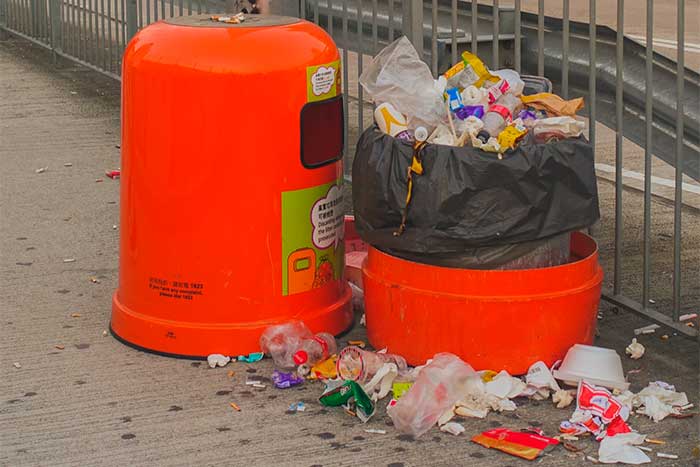We often eat food without thinking much about where it came from, but the reality is, your eating choices can have a sizable impact on the environment. Many companies are working tirelessly to improve their environmental policies and practice more sustainable sourcing and production – but it’s still important to be aware of your choices as a consumer.

@sanjoghamett
How Your Food Impacts the Environment
These are just some of the ways that your eating choices can impact the environment:
- Land use. First, we need to think about the use of land for agriculture. To produce food, a farmer typically needs access to many acres of land to grow crops, and further acres of land to raise livestock. To acquire this acreage and prepare it for food production, they must first eliminate the natural environment that was originally there, preventing natural biodiversity and gradually taking over the planet.
- Greenhouse gas emissions. Did you know that the agricultural industry is collectively responsible for 26 percent of all global greenhouse gas emissions? Greenhouse gases are largely responsible for the current climate change crisis. Pollution from farm equipment and methane emissions from livestock both contribute to this major environmental challenge. Additionally, when food is shipped across the country, or across the world, the vehicles carrying that food produce further greenhouse gases.
- Freshwater use. It takes an absurd amount of freshwater to grow and sustain our food production, with agriculture responsible for 70 percent of global freshwater withdrawals. While we’re working on cost-efficient methods to obtain greater volumes of freshwater, our natural supply of fresh water is limited.
- Pollution. Certain farming practices can also lead to other forms of pollution. Pesticides and other byproducts can make their way into local bodies of water, or deep into the soil, making it difficult (or even impossible) for other forms of life to thrive.
- Reduction of biodiversity. Raising livestock almost necessarily reduces the biodiversity of the planet; we dedicate vast amounts of land to a handful of commonly eaten species. We also have a tendency to hunt and fish certain species to the brink of extinction unless regulations are put in place – and not every country is regulated appropriately.
- Efficiency issues. Complicating everything is the fact that food production isn’t always efficient. It takes a lot of plant material to raise an animal to maturity, resulting in disproportionate resource requirements for meat. In addition to raising a cow or a chicken, you must also grow the crops necessary to sustain them, multiplying the environmental impact for each calorie of food ultimately produced.
- The population dilemma. Complicating the equation even further is the fact that the human population is consistently rising. We constantly have new mouths to feed, increasing demand for food products and putting even more pressure on the agricultural industry.
How to Make Better Food Choices
From an environmental perspective, it’s important to make more sustainable food choices. Here are the most important ways to exercise your power as a consumer:
- Research the companies you buy from. One of the best steps you can take is researching the practices of the companies you buy from. If you buy meat or a specific food product with a name on the label, run a quick Google search for that company. Does it have a sustainability policy? Does it make a concentrated effort to minimize its environmental impact? Or are there journalistic pieces criticizing this company for its aggressive and unsustainable practices? Make your choices carefully as a consumer – there are plenty of products and companies to choose from.
- Shop locally. When possible, shop locally. Buying from a local farmer, rather than a nationwide corporation, will ensure that your food has to travel the least possible distance to get to your plate. This, in turn, reduces the pollution and environmental impact of your decisions.
- Grow your own food. Even better, consider growing your own food – at least in part. Dedicate a small portion of your yard to growing crops you can use for meals. It will reduce your environmental impact and give you immediate access to fresh, delicious ingredients.
- Consider flexitarianism. Meat is disproportionately impactful on the environment, but many of us don’t like the idea of giving up meat entirely. As an alternative to vegetarianism, consider becoming a flexitarian – and choosing plant-based sources of food and meat alternatives whenever possible.
As an individual consumer, you don’t have much power to influence the development of the global agricultural industry. But you can make smart choices that reduce your impact and support the companies and individuals doing their best to facilitate sustainable farming. Always do your research, seek to learn more about the practices of the people you buy from, and do what you can to make our society more sustainable.
